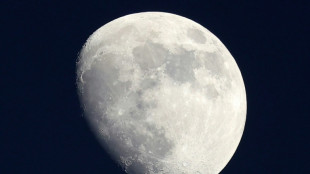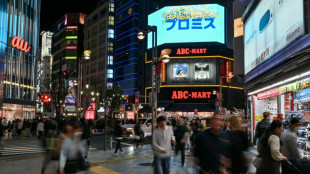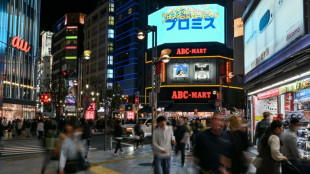Street party draws curtain on Sri Lanka's Rajapaksa era
Exhausted and drained after nearly 100 days of protests, a small crowd gathered its remaining strength Thursday to celebrate the resignation of Sri Lanka's leader at the seaside headquarters of their campaign to oust him.
A stone's throw from what had days earlier been the office of President Gotabaya Rajapaksa, people smiled wearily at their compatriots as they danced, handed out sweets, embraced each other or waved the national flag.
For more than three months, the seafront boulevard has been home to a cluster of tents used as a staging post for protesters demanding the despised leader step down for his role in driving Sri Lanka's battered economy to ruin.
But only a few hundred people gathered to mark a major milestone in months of agitation, when Rajapaksa emailed his resignation from a safe haven in Singapore after fleeing the country to escape public wrath.
Many veterans of the protest movement were exhausted after enduring tear gas barrages and tense confrontations with security forces in the preceding days.
For others, the moment was marred by word that a legal technicality may delay formal recognition that Rajapaksa had indeed stepped down.
"I certainly feel, I think the crowd here definitely does feel, quite happy about it," activist Vraie Balthaazar told AFP.
"But at the same time, I think there's also until we see the letter, there's always a sense of apprehension."
Part of the small crowd drawn to the protest camp on Thursday evening danced to an improvised call-and-response song by performers on a wooden stage, chanting through a scratchy public address system, as a bemused pair of Buddhist monks looked on.
Elsewhere, the camp continued its function as a safety net for residents of the capital immiserated by the country's economic crisis, with a group of needy citizens queuing up at a soup kitchen.
Nearly all of those present had left by midnight, in the face of evening rains, Sri Lanka's chronic petrol shortages and a government curfew imposed to contain unrest.
- 'People's power' -
The subdued celebration was a far cry from the high-octane confrontations on the streets of Colombo at the weekend, when huge throngs of people elbowed their way past troops to seize Rajapaksa's home and office.
Soldiers had fired in the air to clear a passage for the president's escape, mirroring the ignominious exit of his brother Mahinda, the ex-premier, from his own residence two months earlier.
Their departures, along with the resignation of sibling finance minister Basil Rajapaksa in April, have wounded -- perhaps terminally -- a clan that dominated the country's politics for much of the past two decades.
"We feel really amazing. We have shown the people's power," university student Anjana Banadrawatta told AFP.
Under Sri Lanka's constitution, Prime Minister Ranil Wickremesinghe will automatically become acting president until parliament can appoint a successor.
But protesters are also demanding Wickremesinghe's resignation, accusing him of helping to prop up a political order that has allowed corruption and authoritarianism to flourish.
Banadrawatta said he and others would continue their struggle in the morning.
"We are starting a new fight tomorrow with new hope," said the 22-year-old.
But before then, he added, "of course we are going to have fun and celebrate."
P.Mueller--MP




